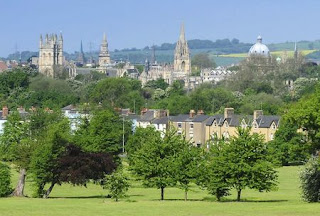Hav-Oxford
Sometimes you hear about a book and you want to read it and it's pretty much like a date, and you really have a crush on them, looking forward everything they will reveal to you, their charm, their wit, their beauty, their kindness, and you may be disappointed once you're there, it turns out you have been imagining things in advance, projecting too much, forgetting reality. And your date is tired, or upset, or distracted by the ex who's suddently appeared in the restaurant next to us or whatever. You date is alive but not necessarily well.
But books are not like that, or at least books by authors you like, there will always be some bits you like: the appreciation of one's style, a certain turn of phrase here and there that deviates from it because the author was too young, too old, pissed off that day and so many other things like their ex sitting near them in the cafe where they're working who knows?, but you're rarely disappointed - or I sincerely hope so.
I heard of Hav by Jan Morris reading an account of it by the author herself in a travel writing anthology, Better than fiction: true travel tales from great fiction writers.
Hav is not a city Jan Morris went to. Despite some of her fans asking her how to get to Hav, Hav does not exist. It is an imaginary city somewhere in Europe-Asia, in the Mediterranean coast, a place where East meets West, a Trieste-Istanbul-Montmartre-God knows where-city. It is a city made of Morris' favourite bits of other cities, with a particular history, sometimes a state-city, sometimes taken by an Empire. To be frank with you I do not want to read 'the second Hav', some sort of post 9/11 land with no sense of humour and a hard-core capitalism, no, I want to know about the first Hav.
I really want to read the book, especially that I could not find it in my favourite library, the Westgate, in central Oxford, near the new 'arcades' the Westgate Centre (there's something to be said about a librarian not able to find a book, I will leave that to you...). I will try my luck at Blackwell's next time I'm in Oxford, even just as an excuse to go to the grand Norrington Room where you are literaly surrounded by books of all subjects.
I'm not too sure either where I'll find the book. Travel literature? General fiction? Scifi? Ursula Le Guin who wrote the preface definitely thinks it's Scifi.
Or does it matter really that I read the book or not? This book makes me dream, this books makes me want to think about my Hav-Oxford.
"oxford spires" by tejvanphotos is licensed under CC BY 2.0.
It couldn't be too much of an utopia of course, there are no such places, even in scifi, where everything is happy-clappy most of the time hides dark secrets and horrors. And I'd still like to feel a ghost of Inspector Morse around.
But perhaps I'd like to see, like the Wantage of old times, a tramway here and there, that would take you to the train station.
I'd like to see less corduroy and tweed and pipes, though you see less and less of them already.
I'd like to see the rivers with more water in (and less of a shitty water if you please Thames Water?) so that we could swim in the Isis, and / or the Thames and enjoy seeing the students jump of Magdalen Bridge on the 1st of May, I'd like however to remove the microphones in the tower, it was nice for a year or two to hear the kids' choir from Magdalen School but it's also nice to not hear them that well, depending on the weather or the wind. It adds to the surrealism of the event, the absurdity of it.
But above all, I'd like the city not to change. Above all, I'd like to continue seeing the spires from far away and from every possible angle. The best place in Oxford to see the spires is the one you can enjoy on the top of South Park, as you can see from the picture above.
But I've discovered another spot, not that easy to reach. When you're coming from Wantage on the Oxford Bus Company X1, just leaving Bagley Woods and you turn into Hinksey Hill, there you see it, that wonderful sight of the dreaming spires. And you think that's exactlyt how it looked then, in old times when people would walk or ride the road to make a life there or coming to the Market to sell a few of your products or animals. You could be a student in the fifteenth century, and this view, walking towards that beauty, would be your view today. One day, I ought to be courageous, and stop at the last bus stop in Bagley Wood and walk the rest, trying to capture that beauty into my camera.



Comments
Post a Comment